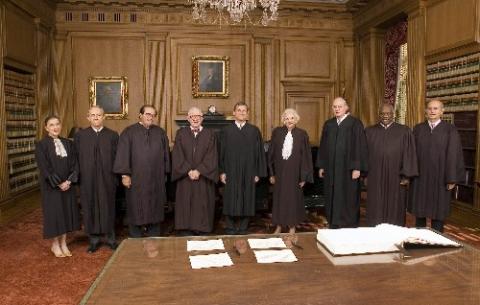上海婚姻律师
你在这里
Chapter 3 Diversity of Citizenship Jurisdiction
I . Diversity Among the Parties
- Complete Diversity When Action is Commenced.Every plaintiff must be of diverse citizenship from every defendant. If one defendant and one plaintiff are co - citizens of the same state,there is no diversity jurisdiction. This is the rule of" complete diversity. "
- " Alienage" Jurisdiction
Most bar exam questions in this general area involve basic diversity of citizenship jurisdiction , in which the dispute involves" citizens of different states," as discussed immediately a- bove. However,sectionl332( a) (2) grants subject matter jurisdiction over!'alienage" cases, in which the dispute is between a citizen and a state,on the other hand,and an"alien"—meaning a citizen or subject of a foreign country.
- Diversity When Action is Commenced
Diversity of citizenship(or alienage) must exist as of the time the suit is instituted. It need not exist at the time the cause of action arose, and it is not defeated if, after commencement of the action,a party later becomes a citizen of the same state as one of his opponents.
- Questions of Citizenship
- State Citizenship of an Individual—Domicile
The determination of the sate of citizenship of a natural person depends on the permanent home to which he intends to return.
- Citizenship of a Corporation—Multiple Citizenship
For diversity purposes,a corporation’s citizenship is defined by federal statute. Under this statute, a corporation is deemed a citizen of" any" state of its incorporation-, which has been interpreted to mean" every" state of its incorporation, and also of the one state in which it has this principal place of business.
- Unincorporated Associations
- Citizenship
In claims based on federal law for or against an unincorporated association, the association has entity capacity,but the question of its citizenship is normally irrelevant because the court will have federal question jurisdiction.
- Class Action
If the association is large,a class action is possible. If a class action is brought,the relevant citizenship is that of the named members who sue or are sued on behalf of the members of
the association.
- Partnerships
The citizenship of a general partnership is that of each and every general partner. The citizenship of a limited partnership is that of each and every partner,both limited and general.
- Collusion and Devices to Create or Defeat Diversity
The federal court does not have jurisdiction if a party" by assignment or otherwise, has been improperly or collusively made or joined to invoke jurisdiction. "
II. Jurisdictional Amount; In Excess of $ 75,000
Actions brought in a federal court under the diversity statutes must meet the jurisdictional amount requirement. The matter in controversy must be in excess of $75,000, exclusive of interest and costs. The amount is determined from what is claimed in the complaint, disregarding potential defenses or counterclaims. Usually,all that is necessary is a good faith allegation that the amount of the damages or injuries in controversy exceeds, exclusive of interest and costs, the sum of $75 ,000. Good faith means that there must be a legally tenable possibility that recovery will exceed the jurisdictional amount. The compliant can be dismissed only if it appears there is no legal possibility of a recovery exceeding the jurisdictional amount. Jurisdiction is not retroactively defeated by the fact that the amount actually recovered is less than the jurisdictional a- mount.
III. Exceptions to Diversity of Citizenship Jurisdiction
For historical reasons,even though diversity may be present,federal courts will not exercise jurisdiction over domestic relations or probate proceedings.
- Domestic Relations
The federal court will not take jurisdiction over actions" involving the issuance of a divorce, alimony or child custody decree. "Note that this exception is quite narrow. Federal courts may maintain actions upon state court decrees,such as those for alimony.
- Probate Proceedings
Federal courts will not take jurisdiction over proceedings maintainable in probate courts, but will take jurisdiction over actions by and against fiduciaries maintainable in state courts of general jurisdiction.

 邱国开律师,系本站主编,在司法机关从事过侦查和公诉工作数年,现执业于上海博和汉商律师事务所,成功代理过大量婚姻继承等民事案件,专注于婚姻法、继承法等领域的研究。服务领域包括婚姻家庭案件代理、企业法律顾问等。执业证号为13101201210136994
邱国开律师,系本站主编,在司法机关从事过侦查和公诉工作数年,现执业于上海博和汉商律师事务所,成功代理过大量婚姻继承等民事案件,专注于婚姻法、继承法等领域的研究。服务领域包括婚姻家庭案件代理、企业法律顾问等。执业证号为13101201210136994




